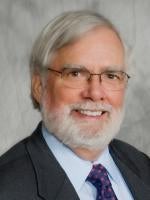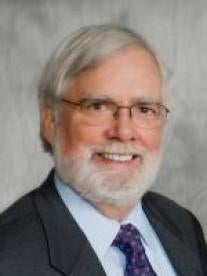Last Thursday, I managed to miss the webinar sponsored by the Federal Circuit Bar Association on Alice v. CLS Bank, post-oral argument. However, I just finished listening to the audio transcript. It is not easy to summarize an hour-long discussion debate with a moderator and four participants, but it is not every day that you get to hear the attorneys for the two parties, Carter Phillips (Sidley Austin) for CLS, Mark Perry (Gibson Dunn) for Alice, along with Scott Weidenfeller, Senior Counsel in the Office of the Solicitor, USPTO, and John Whelan, Dean of IP Law at George Washington Law School (moderator was Aldo Noto (Andrews Kurth). Mr. Perry provided the slides. Even though it was not always possible to tell who was speaking, there was a lot of agreement, and I will try to summarize and comment on themes that ran through the program. Comments in brackets are my thoughts.
To quickly recap, since it helps to recall just what the Court was asked to resolve. Alice framed the question: Whether claims to computer-implemented invention – including claims to systems and machines, processes, and items of manufacture- are directed to patent eligible subject matter within the meaning of section 101.” CLS, who prevailed at the Fed. Cir., simply asked: “Whether the courts below correctly concluded that all of the asserted claims are not patent-eligible.”
The participants seemed to agree that the Supreme Court did not take this appeal simply to affirm the Fed. Cir. If the Court just wanted to invalidate the patents, it could have simply denied cert. However, [especially given the beating Mr. Perry took during oral arguments], no one predicted that Alice would “win”, not even he. Mr. Perry was left to argue, as he did at oral argument, that the technology in question was difficult to implement when the patents were filed in the mid-90’s. He resented Breyer’s dumbing the technology down by using his King Tut and checkbook analogies, and appreciated Kagan’s comment that word processing seemed extremely innovative when only typewriters were available. Still, no one seemed to think that simply programming a business method as in Bilski to run on a computer should generally be patentable.
The participants noted [correctly] that the [cult of] the “abstract idea” had its origins in dicta in Chakrabarty and that the term is in no way “self-defining”. I felt that the participants conflated the Prometheus decision with Bilski and/or Myriad by seeming to agree that Prometheus was based on the reasoning that the application of an abstract idea is not patent-eligible without a further inventive concept. Of course, Prometheus involved application of a natural law, not an abstract idea. The Solicitor [mostly] noted that State Street Bank had established a low hurdle to get past 101, and raising it would encourage Examiners to use it as a barrier to keep from having to examine patents under 102, 103 and 112, sections that are much less subjective that is 101. Such rejections will be difficult to rebut by Applicants. [Of course, that is just how the overreaching PTO Guidelines on Natural Laws are already being applied by Examiners – someone should tell the Solicitor about the havoc that these pseudo-judicial Guidelines are wrecking right now!]
There was pretty much a consensus that the Supreme Court wants to take it slow, and that it is trying to separate the application of 101 to pharma/biotech inventions and computer-related inventions. There was recognition that the Court was not impressed by the Solicitor’s brief that proposed a number of factors to weigh to resolve the question of whether an invention is related to “science, technology or industry.” However, the participants seemed to agree (perhaps not Mr.Phillips) that claims that are not just to an algorithm run on a computer, but that use the computer as a tool to solve a real-world problem, should be patent-eligible. In other words, while Diehr can seem inconsistent with Flook and Benson, the output in that case was more than “a number,” but solved a real-world problem that had not be addressed adequately before the Diehr invention. It was noted that Justice Breyer seemed to be asking, “What is the real-world effect here?”, such as keeping a car running via an onboard computer. (I’ve just used the term “real-world” three times – now try to define it!)
There was certainly a consensus that Congress does not want to get involved at this point, particularly in view of the fact that many of the amicus briefs argued, in effect, “Don’t render a decision that hurts me!” The AIA is not to be read as endorsing the existence of business method patents. However, no one (even Mr. Perry) seemed to urge that all business patents should be ruled patent-ineligible – whether or not they need computer implementation.
Well, I think that my summary has gone on long enough. I apologize if any participant feels that I mischaracterized their position. However, reviewing my notes left me with the impression that the participants all feel that the Court is not sympathetic to business method patents. (The patent-eligibility of software was not discussed – and it was not proposed as part of the “Question” that the Court must resolve in some way.) If this is the case, and “abstract idea” is just too hard to define in workable guidelines, perhaps the Court will simply clarify matters by (slightly) revising its holding in Bilski and ruling that all business methods are patent-ineligible, as attempts to regulate human behavior. (Imagine a patent on “the Wave” cheer.) Put another way, the Court could simply find that business methods, however carried out, are not the “technological advances” identified by the Solicitor as patent-eligible. The M&T test doesn’t look so bad now, does it?
You can find an audio recording to the Alice V CLS Bank discussion here.



 i
i


